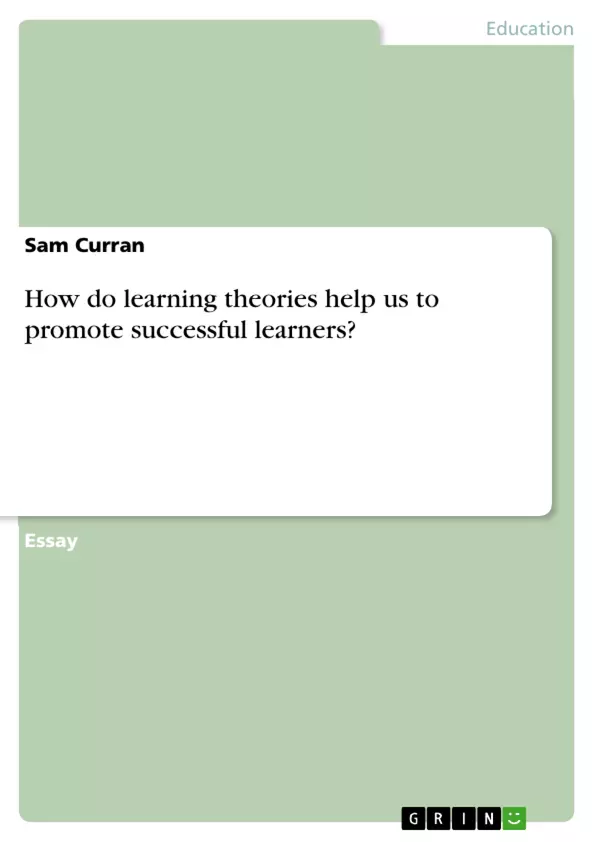There are numerous varied theories of how children learn and how they acquire new knowledge to the point that they competently retain and apply what they have learnt unconsciously. An awareness of certain learning theories may be conducive to a teacher’s practice as they may then be able to adapt their teaching so that it conforms to the style in which students naturally learn. However, it might be hard to ensure that every pupil has their learning style suitably reinforced as there may be a large spectrum of the ways in which pupils learn within a class.
Table of Contents
- How do learning theories help us to promote successful learners?
- Learning theories and their impact on the classroom
- Vygotsky's Social Constructivist theory
Objectives and Key Themes
The article explores the various learning theories and their potential applications in promoting successful learners. It aims to analyze the implications of these theories for classroom practice and discuss their strengths and weaknesses.
- The impact of learning theories on teaching practice
- The role of individual learning styles in student success
- The importance of motivation and behaviour management in learning
- The effectiveness of collaborative learning and group work
- The limitations of applying learning theories in diverse classroom environments
Chapter Summaries
- The article starts by introducing the concept of learning theories and their potential to enhance teaching practices. It explores different theories, such as Fleming's VARK model, Piaget's theory of cognitive development, and Kolb's theory of experiential learning. The article then delves into the implications of these theories for classroom planning and highlights the importance of catering to various learning styles.
- The chapter focuses on Skinner's Operant Conditioning theory and Bandura's Social Cognitive theory. It discusses the roles of reward, punishment, and social environment in influencing learning. The chapter also emphasizes the importance of motivation in learning and the impact of behaviour management strategies.
- The article examines Vygotsky's Social Constructivist theory and its emphasis on collaborative learning. It explores the concept of scaffolding and the Zone of Proximal Development (ZPD). The chapter also discusses the potential benefits and limitations of group work and considers Kagan's theory of cooperative learning.
Keywords
The main keywords and focus topics of the text include learning theories, student success, classroom practice, individual learning styles, motivation, behaviour management, collaborative learning, group work, and scaffolding.
Frequently Asked Questions
How do learning theories impact classroom practice?
Learning theories help teachers understand how students acquire knowledge, allowing them to adapt their teaching styles to better match natural learning processes and improve student outcomes.
What is Vygotsky's Social Constructivist theory?
Vygotsky's theory emphasizes that learning is a social process. Key concepts include the Zone of Proximal Development (ZPD) and scaffolding, where learners are supported by a "More Knowledgeable Other."
What are the limitations of applying learning styles in a classroom?
It can be difficult to reinforce every individual's learning style simultaneously due to the wide spectrum of needs within a single class, potentially leading to some students' styles being overlooked.
How do Skinner's and Bandura's theories differ?
Skinner focuses on Operant Conditioning (learning through rewards and punishments), while Bandura emphasizes Social Cognitive theory (learning through observation and imitation within a social context).
What is the "Zone of Proximal Development" (ZPD)?
The ZPD is the distance between what a learner can do without help and what they can achieve with guidance and encouragement from a skilled partner.
- Quote paper
- Teaching Sam Curran (Author), 2012, How do learning theories help us to promote successful learners?, Munich, GRIN Verlag, https://www.grin.com/document/423877



